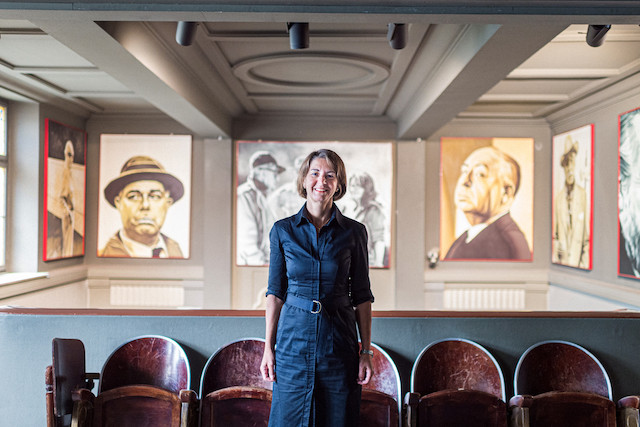Back in 2006, as a family, we were looking to move abroad for a few years. Hong Kong and Shanghai were in the loop, but when I asked about the opportunities within the bank where I was working, they proposed Luxembourg. My Swedish friends were sceptical at the time, but it turns out, Luxembourg is a very dynamic place. It is perhaps less adventurous than Shanghai, but it is extremely international and definitely less dense. It is also one of the few places where you can have an interesting job while enjoying a high quality of life.
Luxembourg offers the advantages of a small city, but with all the benefits of a European capital, including a rich cultural scene. One of my favourite places is the Cinémathèque (pictured) where you can enjoy a great retrospective in an atmospheric environment.
Almost half of Luxembourg residents are foreigners, which makes it feel highly cosmopolitan in spite of its small size. It is easy to get to know new people and you often find yourself with four different nationalities around the dinner table.
What I find so striking is how Luxembourg’s pragmatic political leadership has managed to create a highly productive economy combined with strong social protection.
Luxembourg has a long history of welcoming new people but also new businesses. Entrepreneurs will find that the administration is very helpful and supportive, red tape is minimal, and resources like Guichet.lu offer a plethora of useful information.
An enthusiastic city biker, I struggled with the hilly landscape when I first arrived. Fortunately, the City of Luxembourg has invested heavily in green infrastructure, there is free public transport, numerous bike lanes, and a large network of for-hire electric bikes for those uphill commutes.
In the beginning we found the city rather quiet, especially on Sundays when all the shops were closed. But we soon realised that everyone was enjoying lunch in a restaurant with a glass of Moselle wine among friends and family. Luxembourg is also a very nice place for children to grow up in with a wide range of international schools and excellent facilities. So, what is missing? Well, for a Swede, I would say the sea and big lakes. But I am sure that the government will solve this as well, sooner or later...
This article first appeared in the print version of the Delano Expat Guide 2020-21.
